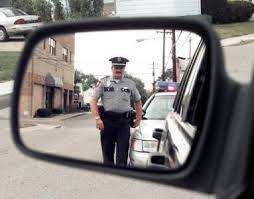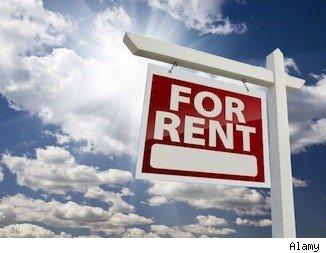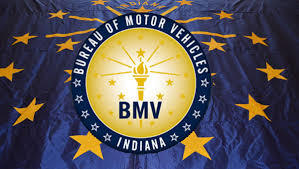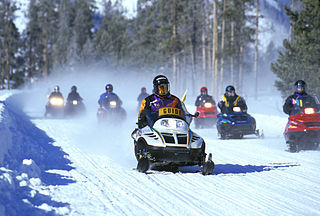|
What is a non owners SR22 auto insurance policy? If you had your license suspended and are getting close to having your license reinstated, one of the last steps you will probably have to do is buy some type of auto insurance policy with an SR22 filing attached to it. But what do you do if you need an SR22 filing but do not own a car? Regular auto insurance policies always insure at least one vehicle, so that option won't work for you. Fortunately there are other types of auto insurance policies that you can get coverage for without owning a vehicle which will satisfy the SR22 filing. However it can be frustrating. Because not all auto insurance agents sell these type of nonowner auto insurance policies. It can also be frustrating because the type of coverage you need varies from state to state. So much of the information about this type of coverage seen online can be inaccurate due to state differences. This article aims at helping you find out what you need to know, exactly what type of policy to look for, and the best place to look for them. I will cover the states that I sell these types of policies in; which are Ohio, Michigan, Indiana, Pennsylvania, Virginia and West Virginia. As I said before, policies and requirements vary from state to state. But they're all similar enough that a lot of it is repetitive, so you only need to look up the state below that you live in. Ohio
Unlike the other states, Ohio gives you more than one option to have liability auto insurance coverage on yourself without owning or insuring a vehicle. The three types of policies are a financial responsibility bond, a named operators policy, or a broad form named driver policy. Here are some similarities and differences between the three types of policies:
Click here to get a quote for an Ohio Financial Responsibility bond. Click here to get a quote for a Broad Form Named Drivers Policy. Click here to get a quote for a Named Operator Policy Michigan If you need an SR22 but don't own a vehicle, your only option is a Named Operator's Policy. But you'll be happy to know that the cost of a named operator's policy (aka non owners policy) is far less expensive than a regular auto insurance policy that vehicle owners are required to have. Here are the major points regarding a Michigan named operator policy: A named operator policy does not require medical benefits coverage like regular auto insurance does (regular auto insurance requires 530K in medical benefits coverage.
Click here to get a quote for a Michigan Named Operators (non owner) policy Pennsylvania
Click here to get a Pennsylvania Named Operator policy Quote. Indiana
Click here to get a quote for an Indiana Named Operators (non owner) policy. Virginia
Click here to get a quote for a Virginia Named Operators (non owner) policy. West Virginia
Click here to get a quote for a West Virginia Named Operators (non owner) policy. Summary: I hope this article cleared up any confusion you had for buying a non owners policy. But if you have any questions, feel free to give me a call or email, and I will be happy to answer your questions. And if you would like for me to run you a quote, fill out one of the appropriate links above. I will do the shopping around for you and find you the company with the lowest rate. And as always, I handle all quotes personally and privately. Related Blog Articles: Video: Out of State SR22 Auto Insurance Filings Understanding named operator (non-owner) auto insurance policies and how to get the best rate What is SR 50 insurance in Indiana? FAQs
0 Comments
If you're a landlord and have had one of your rental properties remain vacant longer than two months, you understand the frustration and aggravation it can be trying to find dwelling fire insurance coverage on that property. Most insurance companies will not insure a property that's been vacant longer than two months. However, there are companies that will work with you as long as your property can pass a few minimum requirements. Hopefully, this article will help you solve your problem. This article will give you an overview of the vacant rental property program to see if your property qualifies, and to see if it's a policy that fits your needs. I will break this down in 4 steps: 1. Requirements to be eligible for coverage. 2. Which type of vacant properties are acceptible. 3. Which type of vacant properties are not acceptible. 4. Overview of the policy and additional coverage options and features.. 1. Requirements to be eligible for coverage. To be eligible for this type of policy and coverage, there are only four major requirements: 1. Buildings must only house 4 families or less. 2. Must be vacant less than two years. 3. Has not been without insurance company longer than one year. 4. Property must basic secured completely with the intent to sell rent or occupy the property within the next two years. Condition requirements: at minimum the property must be in marginal condition and exhibit at least minimal maintenance on both the dwelling and the grounds. 2. Vacant properties that are acceptable.
3. Vacant properties that are not acceptable.
*Note*: Properties with a pool or pond on premises are ok, but liability coverage will not be offered. 4. Policy overview and additional options and features.
"Build your own policy": optional coverages include:
Other policy features:
Summary: If this sounds like the type of policy that you need to insure your property, feel free to fill out a quote form below, and I will be happy to help you try to solve your problem. And as always, I handle all quotes personally and privately. Get a Vacant Rental Property Quote with Lyles Insurance Call me for a Quote Related Blog Articles: Video: Foremost Insurance Coverage for Vacant Rental Properties In the state of Indiana, auto insurance laws are a little different when it comes to reinstating your suspended license with the BMV. That is because an SR22 filing gets confused with an SR50 filing. While all but eight states have SR22 filings, Indiana is the only state that has SR50 filings. Having the two filings together gets confusing. This article will explain what you need to know about both the SR50 and SR22 auto insurance filings, and help you learn how to reinstate your license as soon as possible (we will also cover the SR21 as well). Before I explain the differences between an SR50 and an SR22 filing, it would be easier for you to learn how they're both similar first. Similarities:
How to set up the SR50/SR22 attachment onto the right auto insurance policy that you need. This is the most important step because it is where people tend to make the most mistakes. But the solution is very simple! There are only two types of personal auto insurance in Indiana: a regular auto insurance policy and a named operator auto insurance policy (aka non owners policy). To determine which of the two policies you need is very simple:
Next step: Filing the SR50/SR22 to the state BMV after buying your policy. The good news here is that you do not have to do anything. Per Indiana law, both the SR50 and SR22 filings must be filed electronically to the BMV by your insurance company. So once you buy a policy with either filing attached, you just have to sit back and wait for the BMV to process it. Usually this does not take long. The insurance company will send the filing right away and the BMV will normally have it processed within one or two business days. What's the Difference between the SR50 and the SR22 Filing?
Other types of Indiana State filings:
Summary: I hope this clears up any confusion and answered any questions you might have about either the SR50 or the SR22 filing. If you still have questions, feel free to call me or drop me an email, and I'll be happy to answer any of your questions. If you would like to get a SR50/SR22 quote and move forward towards getting your license reinstated, click on one of the two links below, and I will be happy to shop around for you and find you the company with the best rate. And as always, I handle all quotes personally and privately. *source: Indiana BMV. http://www.in.gov/bmv/2373.htm If You Own a Vehicle, Get an SR50 / SR22 Quote with Lyles Insurance Here. If You Do Not own a vehicle, Get an SR50 / SR22 Quote with Lyles Insurance Here. Call me for a Quote Related Blog Articles: Video: Indiana BMV Myth: "You need both SR50 & SR22 Auto Insurance" Video: Indiana SR22 Insurance Indiana Named Operator Auto Insurance Policy: Key Points to Know Buyers guide for buying an Indiana SR50 or SR22 auto insurance filing What's the difference between an Indiana SR50 and an SR22 auto insurance filing? What is SR 50 insurance in Indiana? FAQs Where can I find the best Michigan Snowmobile Insurance coverage and still get a Low Rate?12/1/2014 Buying snowmobile insurance in Michigan is easy. But trying to find the right coverage at a reasonable price can be a lot more difficult. There are a few stumbling blocks that you need to avoid when selecting snowmobile insurance. I will go over those and give you some tips on finding a lower rate as well. The main difference between good snowmobile insurance coverage and bad coverage: The biggest pitfall I see is when some sledders purchase snowmobile insurance is buying the wrong type of policy. There are basically two types of policies: 1) snowmobile insurance that is attached to their homeowners insurance policy, and 2) exclusive snowmobile insurance that stands alone without being attached to any other insurance policy. A stand alone exclusive snowmobile insurance policy offers far better coverage than a snowmobile policy attached to a homeowners policy. There are three major red flags to look out for on an attached snowmobile policy:
Of course, there are exceptions. There are some attached policies that offer adequate coverage just like stand alone snowmobile policies, but not many. If you are considering attaching your snowmobile to a homeowners policy, at least read the fine print of what is covered and what isn't. If you see one of the above red flags, run!!! Other advantages of having a stand alone snowmobile insurance policy.
Most stand alone snowmobile policies also include additional optional coverages that are not usually available on an attached snowmobile policy:
The bottom line is this: Stand alone snowmobile insurance policies dollar for dollar offer far better value than a snowmobile that is simply attached to a homeowners policy. The difference in price between the two are usually very minimal. Tips on how to get the best snowmobile insurance coverage at the lowest rate. Now that you know which type of snowmobile insurance policy to buy, the next step is finding out how to get the best rates relative to the value of coverage. Here are some tips on that:
Get a Michigan Snowmobile Insurance quote with Lyles Insurance Call me for a Quote Related Blog Articles: Video: Things You Must Know When Buying Snowmobile Insurance in Michigan Video: Basics of a Snowmobile Insurance Policy How-To Guide for Buying Michigan Snowmobile Insurance Online |
Author
Dan Lyles is an Independent Insurance Agent serving Ohio, Indiana, Michigan, Pennsylvania, Virginia and West Virginia.. Archives
March 2021
Categories
All
|






 RSS Feed
RSS Feed